Dave Neale: why we work with zoos
09 September 2014
As an organisation, Animals Asia is fundamentally against the practice of keeping animals in captivity. Yet, we are best known for our animal sanctuaries and a core component of our programmes is collaborative work with zoos in Asia and further afield. Our Animal Welfare Director Dave Neale explains.
Animals Asia maintains that the keeping of wildlife in captivity for entertainment is not ethically justifiable. However, where wildlife holding facilities exist, we are committed to working with them for the benefit of the animals they keep.
To put it more simply, it would be wrong to turn our backs on animals that need us just because we don’t agree with how they’re cared for.
Collaborations allow us to directly improve the lives of the animals in these facilities by providing training for animal managers and veterinary staff. We believe training is essential to develop the knowledge and skills necessary to provide for the physical, behavioural and psychological needs of animals. By working collaboratively and in partnership with zoos, wildlife experts and animal protection and conservation organisations, we hope to see an end to the appalling living conditions and abusive practices which are all too prevalent.
The information exchange works both ways. As an organisation managing animals, Animals Asia has often sought the knowledge and expertise of members of the international zoo community to ensure we best meet the needs of rescued bears.
Our collaborative approach does not mean that Animals Asia supports the overarching concept of keeping wild animals in captivity. We recognise that for some animals, captivity is the only option due to their inability to survive in the wild, or due to their natural home being destroyed or under threat.
However, we are also deeply concerned about the welfare of many thousands of captive wild animals in zoos, safari parks and marine parks, living in the most appalling conditions, and suffering both physically and psychologically.
We recognise it is not possible for any captive facility to provide for all the physical, behavioural and psychological needs of the animals they house. The level at which a captive wild animal facility can provide for these needs depends on a variety of factors, including, knowledge and expertise of behaviour management and enclosure design.
Then there’s the required veterinary skills and facilities available, the level of staff training, the complexities of the species exhibited and the willingness of the management team to prioritise the needs of the animals over money or public demand. All of these factors will differ widely within captive wild animal facilities. Some animals will enjoy a good quality of life, while others suffer each day, without even their most basic needs being adequately met.
Despite our often close working relationship, Animals Asia sanctuaries and zoos generally maintain a fundamental difference. While Animals Asia is about meeting the needs of the animals as individuals, in general, zoos manage animals as part of a population. Therefore the welfare of the individual cannot always be guaranteed throughout their lifetime. While zoos continue to adopt this approach, the interests of individual animals are likely to be compromised. This is a fundamental problem of the modern zoo.
Part of the solution, or part of the problem?
There is, of course, the argument that zoos fulfil a preservation and an education role. But by displaying animals in unnatural environments and, in some cases, training them to perform demeaning and humiliating tricks for public entertainment, can they really claim to be promoting empathy and respect for animals?
Our children need to learn about the natural environment and our responsibilities to protect it. An alternative approach would be to foster empathy and respect for the rich array of wild animals with whom our children share their immediate environment. They could use this empathy and respect as a springboard to learn about other species which are not native to their own countries or regions.
We need to ensure our children are animal aware – aware of the threats animals face and aware of the choices they can make to help to protect and conserve species within their natural environment.
For the foreseeable future, zoos will continue to have the support of the general public and we will continue to work with them to improve the welfare of captive wild animals. We will also work to end the abusive practices which all too often take place in the name of entertainment.
In the meantime we will also support a fundamental shift within this general philosophy to one where the keeping of wild animals in captivity is no longer seen as solution to a global man-made crisis.
BACK
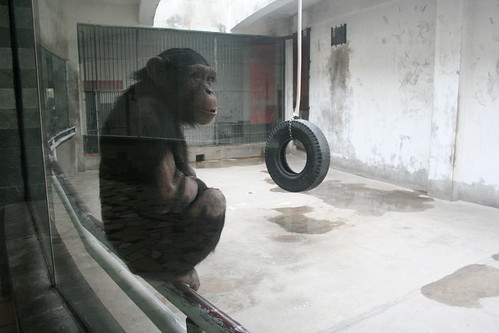
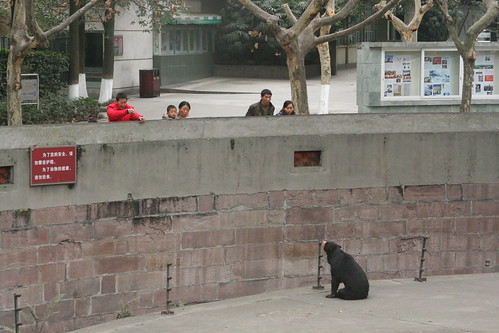
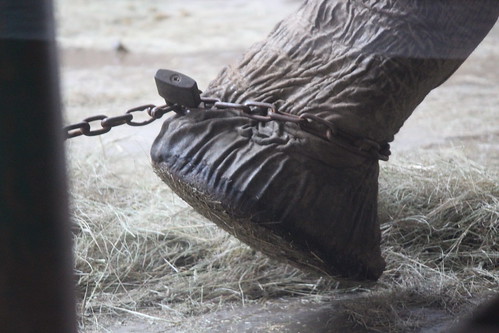
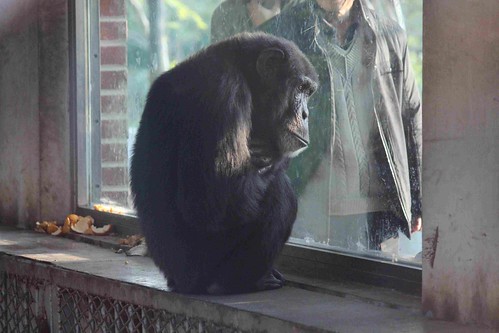




 Freedom after two decades: Moon bears Nang and Mua rescued
Freedom after two decades: Moon bears Nang and Mua rescued
 With heavy hearts we say goodbye to our beloved Tulip
With heavy hearts we say goodbye to our beloved Tulip
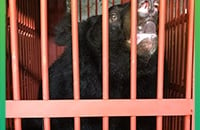 Three moon bears rescued from notorious bear bile farming hotspots in Vietnam
Three moon bears rescued from notorious bear bile farming hotspots in Vietnam
